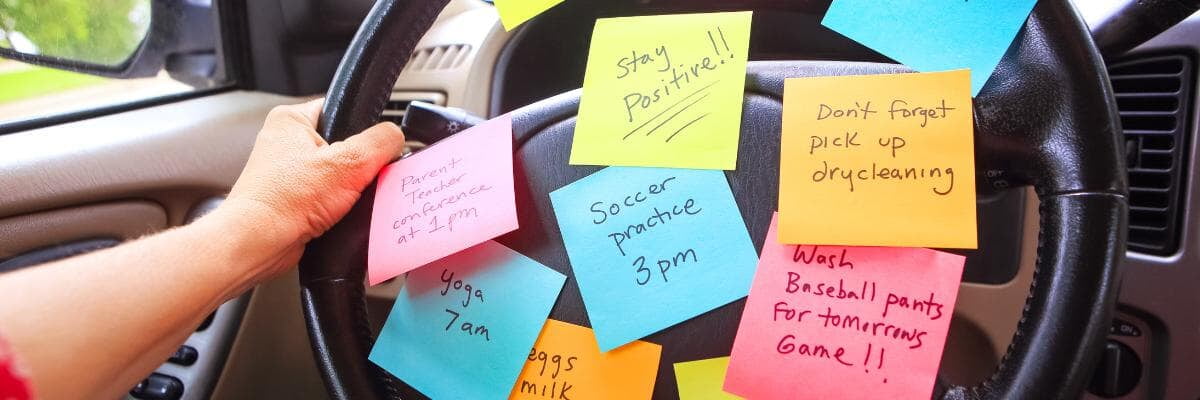Hey there, super moms! We all know that balancing family life, work, and personal time can feel like juggling flaming torches while riding a unicycle. But fear not, because we've got some scheduling hacks to help you keep everything under control and make your days run smoother. Whether you're managing school schedules, extracurricular activities, or just trying to find some "me time," these tips are here to save the day. So grab a cup of coffee, take a deep breath, and let's dive into some family planning hacks that will have you feeling like the superhero you are!

Start with a Master Calendar
First things first: organization is key. A master calendar is your best friend when it comes to keeping track of everyone's schedules. This can be a physical wall calendar, a digital one, or even a combination of both.
Why It Works: A master calendar ensures that everyone is on the same page. It helps prevent scheduling conflicts and keeps the whole family aware of upcoming events, appointments, and deadlines.
Color-Coding for Clarity
Take your master calendar to the next level with color-coding. Assign each family member a specific color, and use those colors consistently for their activities and appointments.
Why It Works: Color-coding makes it easier to scan the calendar quickly and identify each person's schedule. It also helps highlight any overlaps or busy days where everyone needs to be in different places.
Set Weekly Family Meetings
A weekly family meeting is a great way to sync up schedules, discuss upcoming events, and make any necessary adjustments. It’s a time for everyone to voice their needs and make sure nothing falls through the cracks.
Why It Works: Weekly meetings create a routine for checking in and staying organized. It also gives everyone a chance to communicate and plan together, fostering teamwork and ensuring everyone’s on board.
Use a Shared Digital Calendar
For tech-savvy families, a shared digital calendar can be a lifesaver. Apps like Google Calendar allow you to create multiple calendars, share them with family members, and set reminders.
Why It Works: Digital calendars are accessible from anywhere, making it easy to update and check schedules on the go. You can set reminders for important events, and everyone can see the changes in real-time.
Plan Meals in Advance
Meal planning can save a ton of time and reduce the stress of last-minute dinner decisions. Set aside some time each week to plan out meals, make a shopping list, and prep ingredients.
Why It Works: Meal planning helps streamline grocery shopping and ensures you have all the ingredients on hand. It also helps you avoid the temptation of takeout and makes mealtime smoother and more enjoyable.
Create a Morning Routine
Mornings can be chaotic, but a well-established routine can help things run smoothly. Lay out clothes the night before, pack lunches, and set a consistent wake-up time.
Why It Works: A morning routine minimizes decision-making and ensures everyone knows what to expect. It reduces the likelihood of forgotten items and helps everyone start the day on a positive note.
Delegate Responsibilities

You don't have to do everything yourself! Delegate age-appropriate tasks to your kids and partner. This can include setting the table, doing laundry, or helping with homework.
Why It Works: Delegating tasks lightens your load and teaches kids valuable life skills. It also fosters a sense of responsibility and teamwork within the family, making everyone feel involved and valued.
Prioritize Self-Care and "Me Time"
As a busy mom, it’s easy to forget about taking care of yourself. Schedule regular "me time" to recharge, whether it's a yoga class, a walk, or just some quiet time with a book.
Why It Works: Prioritizing self-care helps you stay energized and reduces burnout. It’s essential for maintaining your well-being and being the best version of yourself for your family.
Use Time-Blocking Techniques
Time-blocking is a powerful scheduling technique where you dedicate specific blocks of time to different tasks. This helps you focus and manage your time more efficiently.
Why It Works: Time-blocking helps you stay organized and ensures you allocate enough time for each task. It also helps you avoid multitasking and keeps your schedule balanced.
Embrace Flexibility
While it's great to have a plan, it's equally important to be flexible. Life happens, and sometimes schedules need to be adjusted. Embrace flexibility and don’t be too hard on yourself if things don't go exactly as planned.
Why It Works: Flexibility allows you to adapt to unexpected changes without feeling stressed. It helps you stay resilient and maintain a positive outlook, even when things don’t go as planned.
Streamline Errands and Tasks
Combine errands and tasks whenever possible to save time. For example, plan to do your grocery shopping, pick up dry cleaning, and visit the post office in one trip.
Why It Works: Streamlining errands helps you save time and reduce the stress of running multiple trips. It’s an efficient way to manage your time and ensure you have more free time for yourself and your family.
Keep a Running To-Do List
A running to-do list helps you keep track of tasks as they come up. Use a notebook, a whiteboard, or a digital app to jot down things you need to remember.
Why It Works: A running to-do list ensures you don’t forget important tasks and helps you stay organized. It’s satisfying to check things off and see your progress throughout the day.
Create a Family Command Center
A family command center is a dedicated space for organizing schedules, mail, keys, and other essentials. It can include a calendar, a bulletin board, and storage for important documents.
Why It Works: A command center keeps everything you need in one place, making it easy to find important information quickly. It’s a great way to keep the whole family organized and reduce clutter.
Plan for Downtime
Don’t forget to schedule some downtime! Whether it’s a family movie night, a weekend getaway, or simply an afternoon with no plans, downtime is crucial for relaxation and bonding.
Why It Works: Downtime helps everyone recharge and reduces stress. It’s a valuable opportunity for family bonding and creating cherished memories.
Stay Connected with Regular Check-Ins
Stay connected with your partner and kids through regular check-ins. This can be a quick chat over breakfast, a phone call during the day, or a catch-up session before bed.
Why It Works: Regular check-ins keep communication open and ensure everyone feels heard and supported. It’s an essential part of maintaining strong family relationships and staying connected.
Conclusion: Mastering the Art of Family Planning

Balancing a busy family life requires a mix of organization, flexibility, and teamwork. By implementing these scheduling hacks, you can streamline your days, reduce stress, and create more quality time for yourself and your loved ones. Remember, it’s not about being perfect; it’s about finding what works best for your family and making adjustments as needed.

